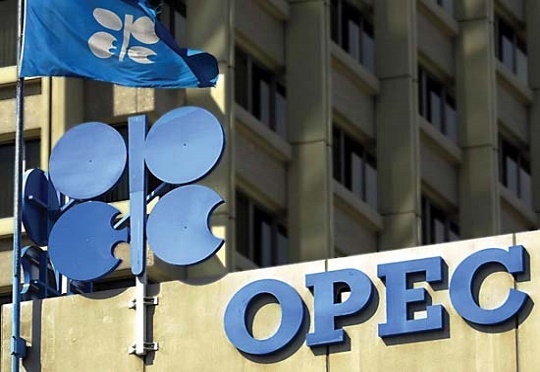OPEC’s influence on oil prices to remain significant in 2024
At their latest meeting in early December, the Organization of Petroleum Exporting Countries and its partners, led by Russia, agreed to reduce their combined production of crude oil to some 2.2 million barrels daily.
This was the latest in a series of cuts, the bulk of them shouldered by Saudi Arabia, that the cartel made in a bid to push international oil prices further. It is pretty much standard practice for OPEC. But this year, the cuts didn’t work. Reports of OPEC’s waning relevance came back into the spotlight. But just as before, they may turn out to be rather premature.
Reuters reported this week that OPEC was about to face lower demand for its crude in the first half of next year. The report cited oil demand forecasts from the International Energy Agency, the U.S. Energy Information Administration, and OPEC itself that suggested demand for the group’s oil will weaken next year, likely as an instance of overall oil demand weakening that the IEA, for one, has been predicting for a while now, so far inaccurately.
The current level of oil demand also appears to be challenging. When OPEC+ agreed to the broader production cuts, traders shrugged it off—first, because they expected it and, second, because global supply appeared to be pretty abundant.
The third reason the market did not really take OPEC+’s actions too seriously was that OPEC members have a history of cheating on production cuts. In other words, chances were there would be enough oil to cover demand, even if everyone officially agreed to cut.
Then Angola said it was quitting OPEC so it could produce as much oil as it wanted; that didn’t help the cartel’s agenda either. It prompted suggestions of a breakup and reinforced the perception that whatever OPEC and its OPEC+ friends do, there will be enough oil, not least because demand will weaken.
It appears that many traders are putting a lot of stock in that specific prediction of weaker demand. And they are forgetting that in order for production cuts to be felt in the physical markets, a couple of months need to pass—at least. Indeed, analysts commenting on the OPEC+ decision from December said that three months—the planned duration of the new deeper cuts—will hardly be enough to impact supply and, hence, on prices.
“I don’t think a three-month cut is long enough to make a meaningful difference in terms of physical supply even if everyone stuck to it,” one such commentator, Adi Imsirovic, told Reuters.
“The cuts are only scheduled to last for three months and it can take up to one or two months for cuts to be implemented,” another analyst said. “Unfortunately, we won’t have an idea of January output until the end of that month, and this is a long time in the oil market,” Investec’s head of commodities, Callum Macpherson, also said.
In other words, prices are where they are right now because nobody is thinking about the state of oil supply four months from now. This is unsurprising, but it is worth keeping in mind that the effects of such decisions do tend to have a delayed effect—just like U.S. drillers’s return to production growth, however cautious it was.
Speaking of U.S. drillers, they are commonly cited as the big reason for OPEC’s failure to influence prices and the resulting loss of relevance some argue we are witnessing. Indeed, U.S. oil producers took everyone by surprise this year by adding 1 million barrels in daily output thanks to well productivity improvements, even as the rig count trended downwards for most of the year.
But it appears that now many assume the industry will maintain this level of productivity improvements and keep adding production. This may indeed happen. But it may also not happen—the EIA has predicted a much more modest production growth rate for this year, at less than 300,000 bpd.
Granted, the EIA has been wrong before, especially this year, as it kept predicting monthly declines in Permian output while, in reality, this output grew. Yet sticking with reality, well productivity improvements are not exactly in the realm of the infinite. There are limits. And there are also corporate strategies, now concentrated among a few corporations after a slew of large deals this year. In other words, production will go where the large producers want it to go, and this does not have to be all the way up.
The latest reports of OPEC’s death are based on assumptions of lower oil demand and continuously growing U.S. output. Neither of these is a certainty. Oil demand has been surprising to the positive ever since BP proclaimed peak demand had come and gone in 2019—and was wrong about it. U.S. oil producers have been surprising with their discipline and newly developed distaste for production growth at all costs.
All OPEC has to do is wait until demand takes care of the comfortable supply levels that traders cite as the reason for weak prices. Its share in the global total may have fallen because of the cuts, but it is still pretty solid at 27% of the total. And it has spare capacity of some 5 million barrels daily it may or may not decide to use should the need arise. Reports of OPEC’s death are, yet again, greatly exaggerated.








